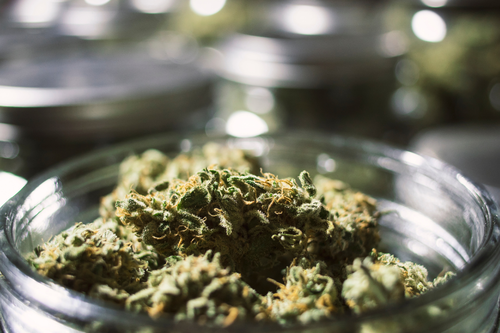Cannabis use in adolescence leads to poorer school performance, lower socioeconomic attainment, study suggests

New University of Minnesota research that followed thousands of identical twins from age 11 into adulthood suggests that cannabis use in adolescence leads to poorer school performance and lower socioeconomic attainment, but not cognitive or mental health concerns in adulthood. This research was published in the Proceedings of the National Academy of Sciences.
“Because these twins shared the same genetics and family backgrounds, differences in adult outcomes between twins were more likely to be specifically attributable to differences in their earlier cannabis use rather than other factors, such as their family’s socioeconomic status,” said Jonathan Schaefer, the study’s lead author and postdoctoral researcher in the Institute of Child Development.
In their work, the team of researchers focused on 364 pairs of identical twins with different levels of cannabis use as teenagers. The study found that:
- the twin who used more cannabis as a teenager tended to perform worse in middle and high school than his or her less-cannabis-using twin;
- the more-cannabis-using twins also tended to report lower educational attainment, occupational status, and annual income as adults; and
- there were no meaningful differences in terms of adult psychiatric diagnoses or performance on tests of cognitive ability.
“Our results suggest that adolescent marijuana use does not cause long-term cognitive or psychiatric problems,” said Nayla Hamdi, study co-author with the Northwest Metro VA Clinic. “Rather, marijuana use seems to reduce academic motivation and performance during adolescence, which leads to lower educational and occupational attainment in young adulthood.”
Researchers state that these were not the results they would expect to see if cannabis use in adolescence had dramatic effects on brain development with long-term impacts on future mental and emotional health.
“Our results support the perspective that actions or treatments aimed solely at reducing teen cannabis use without addressing broader contextual issues are generally unlikely to produce long-term positive effects on cognition and mental health,” said Schaefer. “Connecting cannabis-using teens and their families with mental health professionals who can assess these and other problems is recommended.”
Currently, researchers are collaborating with a complementary twin study in Colorado, which will offer opportunities to consider important questions about cannabis use in states with and without legalized recreational cannabis use.
William Iacono, Stephen Malone, Matt McGue, and Scott Vrieze with the University of Minnesota Department of Psychology, as well as Sylia Wilson with the Institute of Child Development, co-authored this study. It was funded by the National Institute of Mental Health, the National Institute on Drug Abuse, and the National Institute on Alcohol Abuse and Alcoholism.
- Categories:
- Health
- Human development
- Research




